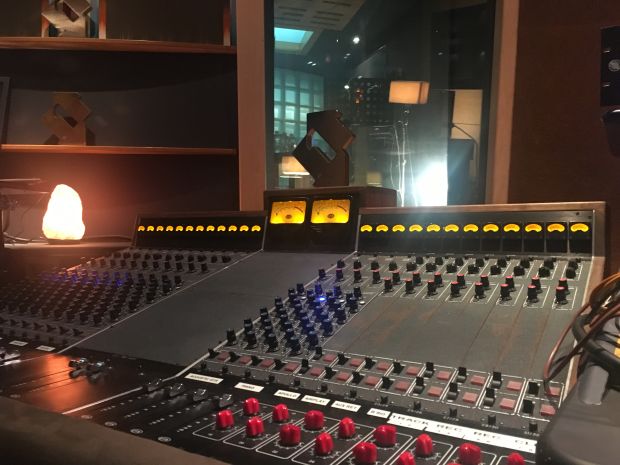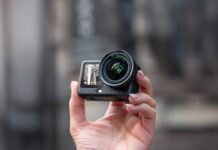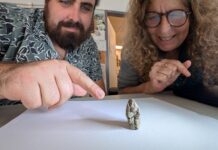
‘You’ve got to understand what the artist wants’: Fraser T Smith on the making of Stormzy’s Gang Signs and Prayer
Daniel Gumble paid a visit to his south London studio to find out more…
When UK grime poster boy Stormzy picked up two huge awards at the BRITs last night, his acceptance speech made the headlines for his comments on the Grenfell Tower tragedy (“Theresa May, where’s the money for Grenfell?”
But there was also a passionate shout-out to Gang Signs & Prayer producer Fraser T Smith, where he said of the album: “I gave everything, every emotion, we made something undeniable,”
UK grime poster boy Stormzy picked up two of the biggest awards at the BRITs last night: Best British Male and Best British Album. With predictions leaning towards Ed Sheeran – an artist who arguably has saved the British music industry – the huge success of the South London rapper has contributed to grime’s chart prevalence in recent years. Having simmered beneath the mainstream’s surface for well over a decade, grime had been threatening to tip the scales from underground movement to bona fide pop culture phenomenon for some time, with things seemingly coming to a head when Skepta scooped the 2016 Mercury Prize with the critically acclaimed Konnichiwa. Here was a genre that had seemingly done the impossible – balancing widespread critical and commercial reverence without losing a drop of its bristling anti-establishment, independent aesthetic.
However, Skepta’s Mercury Prize victory proved to be more a sign of things to come than a peak for the scene, as exemplified by the success of the ground-breaking, sonically complex GSAP just a few months later. Topping the UK album charts, the record also spawned a Top 10 hit with lead single Big For Your Boots, paving the way for a number of burgeoning grime acts to come to the fore, including the likes of Stefflon Don, Dave and Ray BLK to name but a few.
As its title suggest, GSAP is an album of artistic and sonic contrast, balancing electronic beats and bass lines with everything from live strings, harp and choir. Much of this can be attributed to the production techniques weaved throughout the fabric of each and every track by its producer, Fraser T Smith.
Having started out his professional life as a session musician – both in the studio and in a touring capacity – with prog rock icon Rick Wakeman in the 1990s, he went on to play guitar and produce work with Craig David on his breakthrough album Born To Do It.
After deciding to hang up his guitar and take up residence on the other side of the glass, he has since amassed an impressive roster of clients, working with the likes of Adele, Sam Smith, Britney Spears, Ellie Goulding and more.
Here he tells PSNEurope how he brought one of 2017’s most important records to life, what he considers to be the biggest challenges facing the studio sector right now and how technology is changing the role of studio professionals…
Talk us through the making of GSAP?
The important thing was the concept, which from the beginning was gang signs and prayer. It was one of the first things he mentioned – that his life is like gang signs on one side, in terms of where he was from in south London and all the things that are associated with the pressure to be part of a gang and knife culture, and also his devotion to his religious side…the darkness and light. I thought the whole juxtaposition was really interesting. It’s human consciousness, walking the line between good and bad, God and the darker sides. I thought musically it would be interesting to contrast some of the sounds Stormzy was talking about – he’s really into strings, harps and piano – with dark beats and bass lines. That concept and album title pushed us to be more beautiful on the prayer side, working with live strings and choirs and harpists, through to working with other producers sending us beats and ideas and wanting to make that as hard and edgy as possible.
What gear did you use to make the record?
It was a hybrid of Pro Tools, Ableton and the MPC. I’ve got a great relationship with Eric Valentine from Under Tone Audio and we used his preamps. We designed a desk together, which is the UTA console we used that has his EQ, and we tracked most of the instruments through that and bounced a lot of the stuff out at the mixing stage. That hybrid approach was what we took to mixing – half in the box, half out.
Which mics did you use to record the vocals?
We were influenced by albums like Kanye [West’s] The Life Of Pablo, Frank Ocean’s Blonde and all of Drake’s stuff from a sonic point of view. We were really working on getting a high-end vocal sound, which would be great against the darkness of the drums and the bass and it would allow Stormzy’s vocal to really cut through. The main mic we used was a Brauner VM1 into an Avedis preamp, into an API 550 EQ and a Tube Tech CL1B compressor, so it was a pretty high-end chain. We also used the UTA preamp as well, which has its own EQ on different tracks. Then we would take Stormzy’s vocal and bounce it out through the desk and through another compression stage – we’ve got the UTA Fairchild compressor, which is incredible.
How do you approach music production?
My way is really to assimilate what it is the artist wants. That’s the job of the producer. I put myself in the camp of being very empathetic and I want to understand the vision and take that on and work with the artist to make sure that vision is fulfilled, and then take it even further. In terms of a way of working, the most important thing is not to have a set way of doing things. But that means you have to study hard to constantly keep up with new ways of working and be open to collaboration.
What are your three most essential piece of kit?
My engineer! Manon Grandjean, who I’ve worked with for three years, allows me to be close to the artist and I don’t have to get too involved in the technical side. She’s fantastic, she understands my way of working, she can work very quickly, she has great attention to detail. She’s able to work in the way that I was working for so many years when I didn’t have an engineer. I’m a perfectionist and I’m very quick on Pro Tools, and she can match that type of speed, which is great. Then I would say my Ableton set up. And also my MPCX drum machine.

How valuable was your experience as a session musician when starting your career as a producer?
So crucial. Because as a touring musician you can see the pressures an artist is put under in terms of time – interviews, early morning shows etc. And by the time they come to the studio they might have had to do four different interviews, a photo shoot… You have to be aware of these things. After all that, they generally don’t want to be going into a vocal booth and road testing five different mics, where you have to listen to the intricate details between the Brauner and the Neumann. Because I’ve been the other side of the glass I understand that you have to do all of that before the artist comes in. Once they come in you need to make sure that when the red light goes on you’re ready.
Has technology and the rise of the home studio made it harder for budding engineers and producers to embark on a professional studio career?
Initially it can make things quicker. If you have a great beat, that’ll find its home, whether it’s a publisher, manager or artist. You have a quicker rise, but you can stall if you don’t keep learning and understanding that production is a craft that takes years to accomplish. I’m not snobbish at all, there are people out there who are 15, 16 that are making incredible music on their laptop. It’s amazing that you don’t have to sit in a big studio and go through the whole process of learning that craft until you can finally get a night in a studio where you can use all the equipment. But what is maybe lacking is that there is no substitute for time in terms of understanding how to record a vocal and get the best out of an artist. You have to learn to be able to step back from the track and think about the emotional content and how it is linked to the sounds and all of those different things.
Does the streaming boom take away focus from production values, given that more and more people are now listening to highly compressed MP3s?
I think the records have to sound better because of that. Nowadays there is no excuse with the quality of converters available and how we can be so creative within modern DAWs. I remember starting out with a DigiDesign 888 and the difference between that and a 192 and then the 192 with an external clock. I’m of the opinion that records have to sound better now. Plus, phones and laptops sound really good now, and with the advent of Beats by Dre speakers everyone has their own signature headphones and their own favourite headphones. Of course, that’s a status symbol, but with that a lot of people are listening to music in a high fidelity manner.
What would your advice be to someone pursuing a professional studio career?
Study different genres and great records. If you want a career in music, that equals a career of learning and looking at all the disciplines associated with being a great engineer or producer. There’s a joy in never stopping learning and that means you’ll be able to turn your hand to different genres and be around for a whole career, rather than a year to two years.
What’s next for you?
I’ve just finished the Dave EP, which is amazing. We released Question Time, which is a very subversive track about politics and Dave’s view of the current political landscape in England. It’s completely uncensored. Working with him has been incredible. I’m working with Stormzy on new material, so it’s exciting to see where that takes us. I’ve worked on the new Callum Scott record and Raye on her new single, and Ray BLK as well. There are so many incredible artists coming out of the UK at the moment.
Source: mi-pro.co.uk












